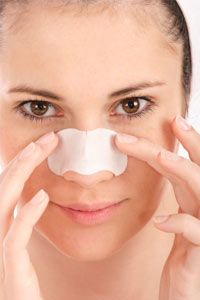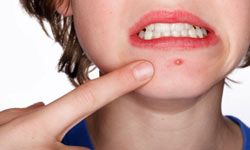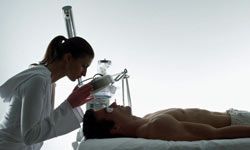Heartbreak, awkwardness, hormones, blackheads … you probably hoped to leave these adolescent problems behind. Although you'll likely outgrow many of these trials and tribulations of your teen years, skin problems might continue. In fact, 20 percent of all cases of acne -- including blackheads, which are considered to be acne -- occur in adults [sources: WebMD: Basics, American Academy of Dermatology: Acne]. But the news isn't all bad. With the right treatment, you can put your problems with blackheads behind you.
Acne occurs when a skin pore becomes plugged and forms a pimple. Acne is often caused by a hormone increase, which triggers the body to produce more oil (or sebum) in the skin. The excess of sebum clogs up your skin pores and bacteria begins to grow, causing the pore to become inflamed, resulting in a pimple [source: WebMD: Basics].
Advertisement
But before becoming inflamed, the plugged pore can become either a whitehead or a blackhead. Whiteheads are pores clogged with oil and dead skin cells, and they take the form of flesh-colored bumps. When the excess oil and skin cells are exposed to air, the breakout turns dark and is called a blackhead. The dark appearance of the plugged follicle is visible at the head [source: Medical News Today].
A variety of factors contribute to the formation of blackheads and acne in general. For example, changes in hormone levels (like the kind you experienced in high school) and bacteria do contribute to these skin problems. There's also a genetic component. If you suffer from acne, you might be able to blame some of that on Mom and Dad, since acne tends to run in families [source: WebMD: Basics].
There is no single cause of blackheads, but you can learn how to get rid of them. Just as importantly, by learning more about the factors that contribute to blackheads, you can discover tips to help prevent them in the first place.
If you suffer from blackheads or acne in general, read on learn why you might like chocolate a little more and your cell phone a little less.
Advertisement


